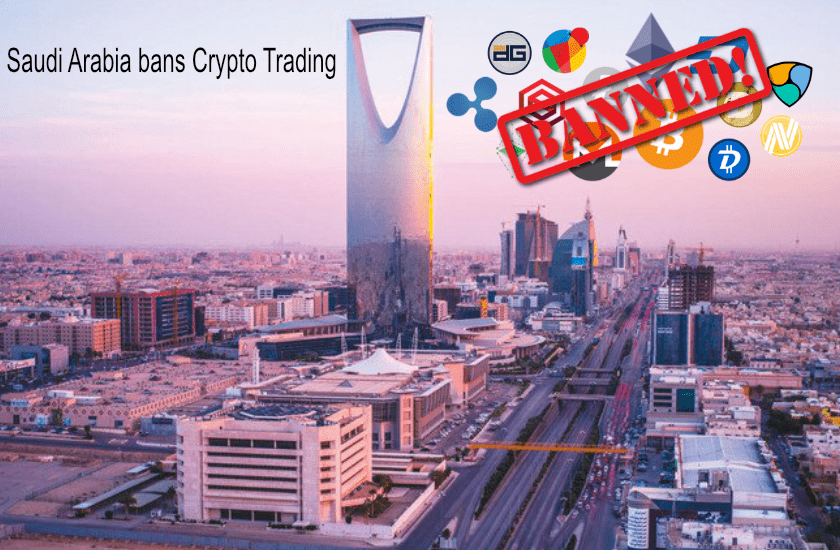Saudi Arabia Clamps Down on Cryptocurrency Trading

Following a recent spate of virtual currency trading promotions, Saudi Arabian state officials have said that cryptocurrency trading such as Bitcoin is illegal in the country.
In a major crackdown, the Arab nation’s government has created Standing Committee for Awareness on Dealing in Unauthorised Securities Activities in the Foreign Exchange Market by supreme decree. Headed by the Capital Market Authority, other members include representatives of the Ministry of Interior, the Ministry of Information, the Ministry of Trade and Investment, and the Saudi Arabian Monetary Agency (SAMA).
The committee of watchdogs will investigate the risks associated with both virtual currency and foreign exchange trading and oversee the enforcement of the prohibition in the kingdom. A statement was released on Sunday, 12 August and reads:
“The committee assured that virtual currency including, for example, but not limited to, the Bitcoins are illegal in the kingdom and no parties or individuals are licensed for such practices”.
Refuting claims by numerous trading websites that they are authorised by official authorities in Saudi Arabia, the committee is working with relevant parties to reduce marketing activities for investment and trading in forex and virtual currencies. It stated:
“The claims of these websites that they are authorised by official authorities in the kingdom are incorrect and that no parties or individuals are licensed for such practices.”
The committee warned that those trading in digital or ‘virtual’ currencies run the risk of “negative consequences and high risks on traders as they are out of government supervision” whilst highlighting the unpredictable nature of the crypto market, not to mention potential scams and anonymity. It said:
“The committee warns all citizens and residents about drifting after such illusion and get-rich scheme due to the high regulatory, security and market risks involved, not to mention the signing of fictitious contracts and the transfer of funds to unknown recipients/entities/parties.”
The statement does not explain, however, what the consequences might be for parties found to be trading in cryptocurrencies.
For details of licensed entities, investors are advised to visit the relevant government’s entity website.
The warning follows a remark by Saudi Prince Al-Waleed bin Talal in December 2017, when he criticised bitcoin, condemning it as “fraud” and claiming it is “just going to implode one day.”
The prince further compared the world’s largest cryptocurrency by market valuation to Enron, the US energy company that collapsed in the early 2000s after revelations of massive accounting fraud.
He added:
“This thing is not regulated. It’s not under control. It’s not under the supervision of any federal – elect – United States Federal Reserve or any other central bank.”
However, although trading cryptocurrencies are illegal in Saudi Arabia, other cryptocurrencies are growing in the Middle East. Earlier this year, for example, Stellar received Sharia compliance certification to integrate with Middle Eastern financial firms. Its native cryptocurrency, lumens, gives users in the Middle East access to more affordable payment remittance channels when sending money across borders.
While this is good news for citizens of other Middle Eastern countries, one thing’s for sure, Saudi Arabia won’t be taking advantage of Stellar’s integration any time soon!
It is apparent that the unregulated nature of cryptocurrencies has led to the Saudi Arabian government making this decision. The standing committee has taken the stance that, for now, banning crypto trading is a better solution than actually enforcing regulation on the digital currencies.
By Joy Lewis

